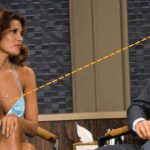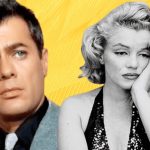The Marx Brothers are remembered for being the kings of the vaudeville stage and the early motion picture screen. They were an American family comedy act that took the world by storm in the early years of the 20th century and remained active – and not to mention incredibly popular – until 1949. Critics, scholars and fans of the genre largely consider the Marx brothers to be among the most influential and greatest comedians of their time.
They got their start in vaudeville but quickly transitioned into performing on Broadway and in motion pictures. To this day, the Marx brothers are considered to be some of the most groundbreaking and iconic comics in the history of the show business. In fact, five of the Marx Brothers thirteen feature films were chosen by the American Film Institute to be included on their list of the top 100 comedy films of all time. Two of those selected films, 1933s Duck Soup and 1935s A Night at the Opera, made it into the top fifteen.
The Marx Brothers are almost always referred to by their stage names; Harpo, Chico, Gummo, Zeppo, and Groucho. Their was a sixth brother named Manfred. In fact, he was the first born, but sadly he died in infancy.
Brothers Chico, Harpo and Groucho made up the core of the act. Each of these characters developed an incredibly distinct stage persona. After the comedy group disbanded in 1950, Groucho Marx went on to enjoy a highly successful second career on TV, while Chico and Harpo appeared on-screen less prominently.
The younger two Marx brothers, Gummo and Zeppo, never fleshed out their stage personas to nearly the same extent as the other three. Instead of keeping their acting careers alive after the troupes disbandment, they went on pursue successful business careers.
Since it’s been well over 100 years since any of the Marx brothers were born, naturally, they are all sadly no longer with us. Join us as we remember the many contributions that these legendary comedy stars made on the entertainment industry. Facts Verse Presents; How Each of the Marx Brothers Died.
Chico
Leonard Joseph “Chico” Marx was born on March 22, 1887, in Manhattan, New York City.
He was the oldest brother in the Marx Brothers comedy troupe. His stage persona consisted of a charming, uneducated yet cunning con artist. He appeared to be of rural Italian heritage and wore shabby clothing while sporting a curly-haired wig with a Bravarian Hat.
On screen, Chico often allied himself with Harpo, as the two were frequently each other’s partners in crime. He was also frequently depicted as attempting to outfox or con Groucho.
Not only was Chico an important player in the comedy troupe, but he also played a substantial role in groups management and development during their early years.
Chico adopted his signature Italian accent growing up around many Italian immigrants who lived in his New York City neighborhood. While the brothers were originally managed by their mother, Minnie, after Chico assumed that duty, he guided the act into stardom.
Chico was the one who first secured the Brothers their first international booking in London. Later on he got them on Broadway and ultimately landed them a contract with MGM with a little help from Irving Thalberg.
Stardom ended up taking nasty toll on several of the Marx brothers – Chico included. In addition to being a compulsive womanizer, Chico had a lifelong gambling problem. In fact, it was likely his gambling addiction that compelled him to continue working in the entertainment industry far longer than his brothers. While the rest of the Marx clan retired in relative comfort and luxury in the 1940s, Chico eventually found himself performing in the same dingy halls in which he had begun his career three decades prior.
The final Marx Brothers film, 1946’s A Night In Casablanca, was made largely for Chico’s benerfit as he had filed for bankruptcy just a couple of years prior. Chico’s out of control gambling problem eventually got so out of hand that that his brothers were forced fto take his money as he earned it and set it aside as an allowance. Chico remained on this allowance until his death at the age of 74 on October 11, 1961.
Chico died of arteriosclerosis, a condition that is known to cause the thickening, hardening, and loss of elasticity of the arterial walls. He was laid to rest in a mausoleum at Forest Lawn Memorial Park Cemetery in Glendale, California.
Harpo
The second oldest Marx brother, Harpo, employed comedic a styling that stood in stark contrast to the more visual comic style of his brother’s Groucho and Chico. Harpo’s comic style was all visual. He was a great example of vaudeville, pantomime, and clown traditions.
Harpo would wear a reddish-blonde wig and was completely silent in all of his film appearances. To communicate he would either whistle or use a horn. He also frequently used props such as a cane which was constructed from a bullhorn, tape, or a lead pipe.
Harpo was born Adolph Marx on the 23rd of November, 1988, in Manhattan, although he would formally change his name to Arthur in 1911. He received very little formal education and ended up dropping out of New York Public School 86 at the age of eight after being subject o heavy bullying.
Before he pursued a career in acting, Harpo worked a number of odd jobs alongside his brothers to help support their family. These jobs included working at a butcher shop, selling newspapers, and serving as an office errand boy.
In 1910, Harpo joined forces with his younger brothers Groucho and Milton to form a comedy trio called the Three Nightingales. Eventually, they would be renamed The Marx Brothers.
Reportedly, Harpo wasn’t very good at memorizing dialogue, thus he was ideal for portraying the archetypal Vaudeville role of a dunce who didn’t speak.
Legend has it, Harpo earned his stage name during a card game at the Orpheum Theatre in Illinois. According to this telling of events, the dealer took to referring to him as Harpo because he played a harp. This version of events, however, has been disputed.
After the Marx Brothers disbanded, Harpo went on to appear in two feature films, 1957s The Story of Makind and 1962s Got It Made – the latter of which seems to be lost to history. Harpo also enjoyed a thriving television career, frequently guest starring on programs such as I Love Lucy, The Red Skelton Hour, and The DuPont Show.
Harpo passed away on September 28, 1964 at the age of 75 in a Los Angeles hospital, just one day after having open heart surgery. His remains were cremated and a portion of his ashes are said to have been scattered in the sand trap at the3 7th hole of his favorite golf course in Rancho Mirage, California.
Groucho
As we mentioned earlier, Groucho Marx, born Julius Henry Marx, is widely considered to be one of the most groundbreaking, influential, and iconic comics of all time. He was known for being a master of quick wit and was quite recognizable due to his distinctive appearance.
He sported spectacles and often had a cigar hanging out of his mouth. He had this exaggerated stooped posture and rocked a thick greasepaint mustache and eyebrows. These highly exaggerated features resulted in the creation of one of the most well-known and recognizable novelty disguises, commonly known as Groucho glasses. You’ve no doubt seen these before. The get-up consists of thick horn-rimmed glasses, a huge plastic nose, bushy eyebrows and a mustache.
Groucho made 13 films with his siblings. He was the third oldest Marx Brother and enjoyed a successful solo career in television and on the radio. Notably, he hosted the game show You Bet Your Life from 1947 to 1960. After that, the show was renamed The Groucho Show for a single season before getting canceled. A follow up series called ‘Tell it to Groucho’, premiered in January 1962 but only lasted five months before getting the ax. He would later make a number of guest appearances on other television programs and formed a number of high-profile friendships with musicians such as Alice Cooper and Elton John.
Groucho made a total of 26 movies, the last of which being 1968s Julia. In the early 70s, Groucho became increasingly frail both physically mentally after suffering form a number of minor strokes. On June 22, 1977, Groucho was hospitalized at Cedars-Sinai Medical Center in Los Angeles with pneumonia. He died two months later on August 19, 1977 at age 86.
Gummo
Milton “Gummo” Marx was born in Manhattan on October 23, 1892. He was the second youngest Marx Brother and got his start in show business working alongside his siblings on the vaudeville circuit. In 1918, when the first world war broke out, he left the act and was replaced by his brother Zeppo.
Following his time in the military, Gummo realized that he had little interest and theater and instead became a businessman. He wound up finding much success in the raincoat business. He later teamed up with Zeppo and operated a theatrical agency. Gummo represented on-screen talent and several prominent writers. Unlike some of his peers, he rarely required contracts, believing that if the folks he represented took favor to his work, they would voluntarily stay with him. This approach made him a well-respected businessman.
Gummo died at his Palm Springs home on the 21st of April, 1977, from a cerebral hemorrhage. He was 84.
Zeppo
Herbert Manfred “Zeppo” Marx was born in Manhattan on February 25, 1901. He was the youngest Marx Brother as well as the last to die. He appeared in the first five Marx Brothers movies from 1929 to 1933, but ended up leaving the act to pursue a career as an engineer and theatrical agent.
Zeppo always possessed great mechanical skills and was responcible for keeping the family car running. After leaving the Marx Brothers comedy troupe, he owned a company that machined parts for the war effort during World War II. The compnay produced the clamps that were used to hold the infamous ‘Fat Man’ atomic bomb inside the B-29 bomber Bockscar that was used to carry it. They also made a motorcyle called the Marman Twin.
Later, he founded a theatrical company with Gummo.
As a Marx Brother, Zeppo was often considered to be a superfluous character. In fact, when the group became the Three Marx Brothers and the studio wanted to trim down their collective salary, Groucho was quoted as saying that the Marx Brothers were twice as funny without him.
Zeppo died of lung cancer in Rancho Mirage, California on the 30th of November, 1979 at the age of 78. His ashes were scattered out in the Pacific Ocean.
With that, we’ll go ahead and wrap this video up. But before you go, we’d love to hear what you have to say about one of history’s most famous comedy troupes. Which one of the Marx Brothers was your favorite and did you know that the brothers had another sibling that died in infancy? Let us know in the comments and as always, thanks for watching!



